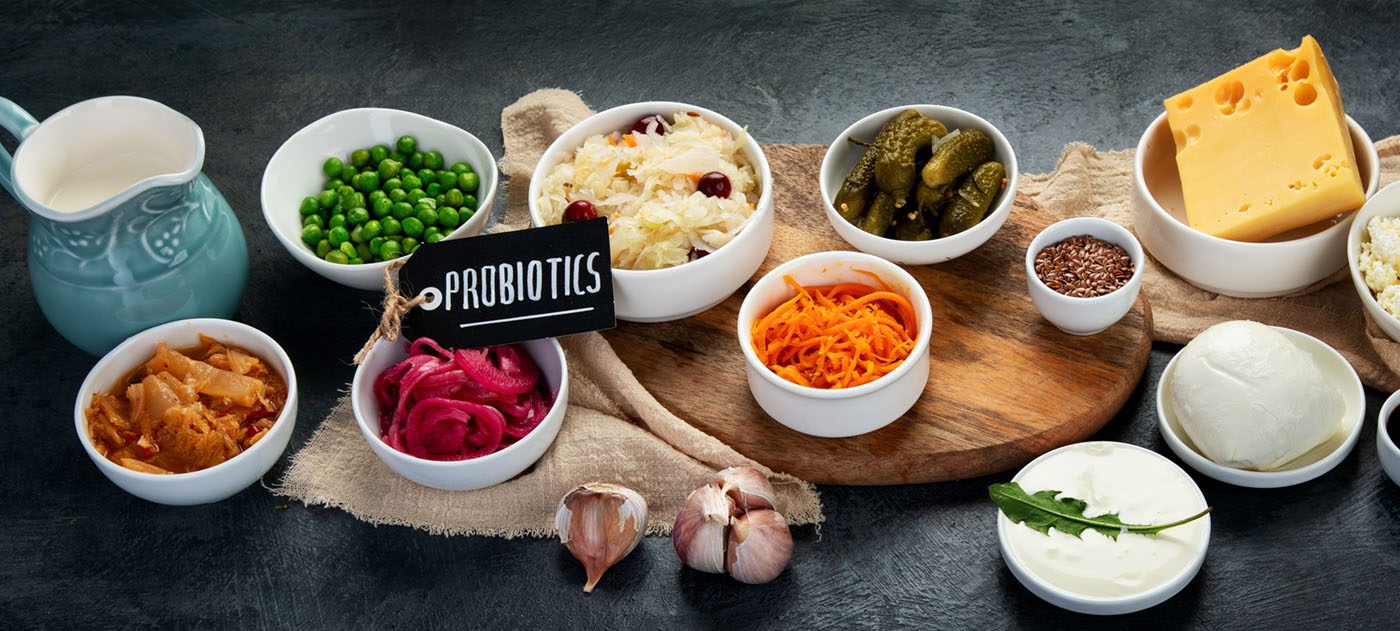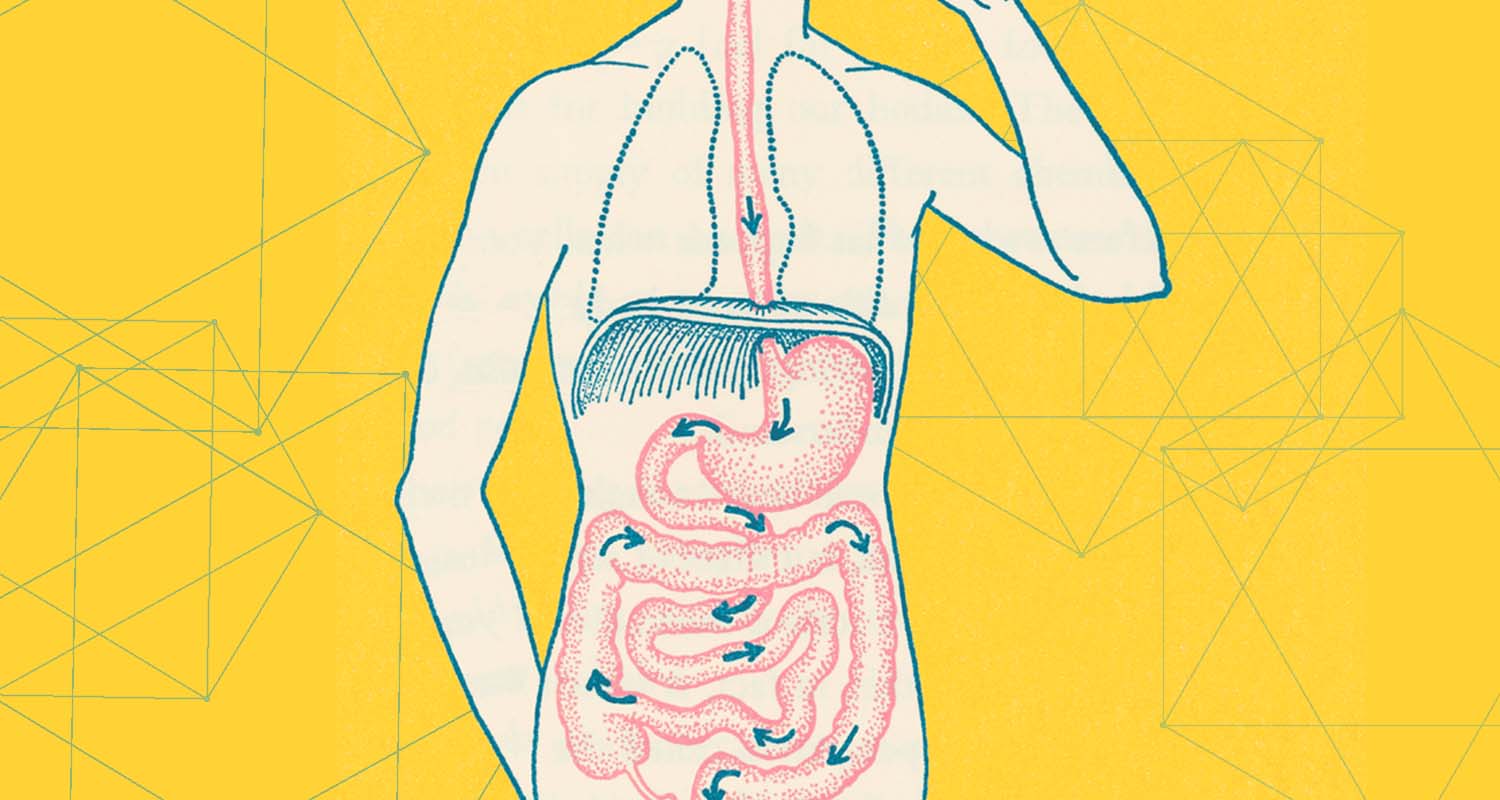Are you looking for ways to improve your gut health? You’re not alone! The gut plays a vital role in our overall health and well-being, and taking care of it can help improve our digestive function, boost our immune system, and even enhance our mental health.In this article, we’ll explore some simple yet effective gut health hacks that you can start incorporating into your daily routine.
What is Gut Health?
Before we dive into the hacks, let’s first define what we mean by “gut health.” Your gut, also known as the gastrointestinal tract, is made up of a series of organs that work together to break down food, absorb nutrients, and eliminate waste.
The gut is home to trillions of microorganisms, including viruses, bacteria, and fungi, which are collectively referred to as the gut microbiome. A healthy gut microbiome is essential for proper digestive function and overall health. (1)
Maintaining a healthy gut is crucial for overall health and wellbeing. Poor gut health has been linked to a variety of health issues, including:
- Digestive problems:
Poor gut health can lead to digestive issues such as bloating, gas, diarrhea, IBS and constipation.
- Immune system dysfunction:
The gut plays a crucial role in the functioning of the immune system, and poor gut health has been linked to immune system dysfunction and an increased risk of autoimmune diseases.
- Mental health issues:
The gut is often referred to as the “second brain” due to the close connection between the gut and the brain. Poor gut health has been linked to mental health issues such as anxiety and depression.
- Chronic inflammation:
Poor gut health can lead to chronic inflammation in the body, which has been linked to a variety of health issues, including heart disease, cancer, and diabetes.
Gut Health Hacks #1: Eat a Balanced Diet
One of the most important gut health hacks is maintaining a balanced diet. The food we eat plays a significant role in our gut health. Eating a balanced diet rich in fruits, vegetables, whole grains, lean proteins, and healthy fats can help support a healthy gut microbiome.
These foods contain essential nutrients that nourish our gut bacteria and promote digestive function.To promote a healthy gut, aim to eat a variety of colorful fruits and vegetables.
Fruits and vegetables are excellent sources of fiber, which is essential for healthy digestion. Constipation can be avoided thanks to fiber, which also encourages the development of good gut bacteria.

Whole grains like brown rice, quinoa, and oats are also rich in fiber and can help support digestive health.Lean proteins like chicken, fish, and tofu are important for building and repairing tissues in the body.
They also contain essential amino acids that support the growth of healthy gut bacteria. Healthy fats like avocados, nuts, and olive oil are essential for the absorption of vitamins and minerals and can help reduce inflammation in the gut.
You can also incorporate fermented foods like yogurt, kefir, and sauerkraut into your diet, which are rich in beneficial bacteria that support gut health.
On the other hand, a diet high in processed foods, refined sugars, and unhealthy fats can disrupt the gut microbiome and lead to digestive issues. These foods can promote the growth of harmful bacteria in the gut and cause inflammation, which can damage the gut lining. (2)
Gut Health Hacks #2: Stay Hydrated
Another important gut health hack is to stay hydrated. Drinking enough water throughout the day can help keep the digestive system functioning properly and promote regular bowel movements.

Water is essential for the body to break down and absorb nutrients from food. It also helps flush out waste and toxins from the body, preventing constipation and other digestive issues.
Dehydration can lead to a number of digestive issues, including constipation, bloating, and gas. To stay hydrated, aim to drink at least eight glasses of water a day.
You can also consume other fluids like herbal tea, coconut water, and vegetable juice, which can provide additional nutrients to support gut health. (3)
Read More: Hepatitis ABC Difference
It’s important to note that drinking too much water or other fluids during meals can dilute stomach acid (necessary for proper digestion). To avoid this, try to drink water and other fluids between meals rather than with them.
Gut Health Hacks #3: Exercise Regularly
Regular exercise is another important gut health hack. Exercise can help improve digestion, reduce inflammation, and promote a healthy gut microbiome.
Physical activity can help stimulate the digestive system and promote the movement of food through the intestines. Constipation and other digestive disorders can be avoided in this way.
Exercise can also reduce inflammation in the body, which can damage the gut lining and lead to digestive issues.
Studies have shown that exercise can also improve the diversity and abundance of beneficial gut bacteria. This can have a positive impact on overall gut health and may even help reduce the risk of certain diseases.
To support gut health, aim to engage in regular physical activity, such as walking, running, cycling, or swimming.

The American Heart Association recommends at least 150 minutes of moderate-intensity aerobic activity or 75 minutes of vigorous-intensity aerobic activity per week, along with muscle-strengthening exercises at least two days per week.
It’s important to note that over-exercising or pushing yourself too hard can have the opposite effect on gut health.
This can cause stress on the body and lead to inflammation, which can damage the gut lining. To avoid this, listen to your body and engage in physical activity at a level that feels comfortable and sustainable for you.(4)
Gut Health Hacks #4: Manage Stress
Stress can have a negative impact on gut health, as it can lead to inflammation, disrupt the balance of gut bacteria, and contribute to digestive issues like bloating and abdominal pain. Therefore, managing stress is another important gut health hack.
There are many ways to manage stress, including meditation, yoga, deep breathing exercises, and mindfulness practices.
These activities can help reduce cortisol levels, a stress hormone that can damage the gut lining and promote the growth of harmful gut bacteria.
Regular exercise, as mentioned in the previous gut health hacks, is also a great way to manage stress. Endorphins are released during physical activity, which can elevate mood and lessen stress.

Getting enough sleep is also important for managing stress and supporting gut health. Sleep deprivation can lead to increased stress levels and inflammation in the body, which can damage the gut lining and contribute to digestive issues.
Read more: Understanding Monkey Bites: Prevention, Treatment, and Risks
In addition to these activities, it’s important to prioritize self-care and take time to relax and unwind. This can include activities like reading a book, taking a warm bath, or spending time in nature.(5)
Gut Health Hacks #5: Take Probiotics
Probiotics are live microorganisms that can provide a number of health benefits when consumed. They are often referred to as “good” bacteria because they can help maintain the balance of gut bacteria and support overall digestive health.
There are many different strains of probiotics, and each may have unique benefits for gut health. Some strains have been shown to help reduce inflammation, improve bowel regularity, and enhance the immune system.
Probiotics can be found in a variety of fermented foods, including yogurt, kefir, sauerkraut, and kimchi. They can also be consumed in supplement form, which can provide higher doses of specific strains.

When choosing a probiotic supplement, it’s important to look for one that contains a variety of strains and has a high CFU (colony-forming unit) count. This can help ensure that you’re getting a diverse range of beneficial bacteria that can support gut health.
Probiotics are not a one-size-fits-all remedy, which is another crucial point to remember. Different strains may have different effects on different individuals, and some people may experience digestive discomfort or other side effects when taking probiotics.
Therefore, it’s a good idea to talk to your healthcare provider before starting a probiotic supplement, especially if you have a history of digestive issues or are taking other medications.(6)
Gut Health Hacks #6: Avoid Antibiotics When Possible
While antibiotics can be lifesaving medications, they can also have a negative impact on gut health. Antibiotics work by killing harmful bacteria, but they can also destroy beneficial bacteria in the gut, which can disrupt the balance of the gut microbiome and contribute to digestive issues like diarrhea, bloating, and abdominal pain.
Therefore, it’s important to avoid antibiotics whenever possible, especially for conditions that are caused by viruses or other non-bacterial infections.

If antibiotics are necessary, it’s important to take them as directed by a healthcare provider and to finish the entire course, even if symptoms improve before the medication is finished.
This can help ensure that all harmful bacteria are eliminated and reduce the risk of antibiotic resistance.To support gut health while taking antibiotics, it’s also a good idea to consume probiotics or fermented foods to help replenish beneficial bacteria in the gut.
However, it’s important to wait at least 2 hours after taking antibiotics before consuming probiotics, as the medication can interfere with their effectiveness.(7)
Gut Health Hacks #7: Get Enough Sleep
Getting enough sleep is essential for overall health and well-being, and it can also play a role in gut health. Studies have shown that lack of sleep can disrupt the gut microbiome, leading to imbalances in gut bacteria and digestive issues.

One way that lack of sleep can affect the gut is by increasing levels of stress hormones like cortisol, which can contribute to inflammation and disrupt the gut barrier.
This can lead to a leaky gut, a condition where the lining of the gut becomes more permeable and allows harmful substances to enter the bloodstream.Lack of sleep can also affect the circadian rhythm, the natural 24-hour cycle that regulates bodily functions like digestion.
Disruptions to the circadian rhythm can lead to digestive issues like constipation and diarrhea.
To support gut health, it’s important to prioritize sleep and aim for 7-8 hours of quality sleep each night. Establishing a consistent sleep routine, avoiding caffeine and alcohol before bedtime, and creating a sleep-conducive environment can all help promote better sleep.
Read More: Saddle Pulmonary Embolism: Symptoms You Should Not Ignore
In addition, practicing relaxation techniques like meditation or deep breathing can help reduce stress levels and support gut health. Eating a balanced diet, staying hydrated, and exercising regularly can also contribute to better sleep and support overall gut health.(8)
Conclusion
Overall, taking care of your gut health is crucial for maintaining overall health and well-being. By following these gut health hacks, including eating a balanced diet, staying hydrated, exercising regularly, managing stress, taking probiotics, avoiding unnecessary antibiotics, and getting enough sleep, you can support a healthy gut microbiome and minimize the risk of digestive issues and other health problems.
While making these lifestyle changes may seem daunting at first, small steps can make a big difference. Start by incorporating one or two of these gut health hacks into your daily routine and gradually build from there.
Remember, everyone’s gut microbiome is unique, and what works for one person may not work for another. It’s important to listen to your body and consult with a healthcare provider if you’re experiencing persistent digestive issues or other health concerns.
By taking care of your gut health, you can support your overall health and well-being and live a happier, healthier life.
FAQs
-
What is gut health, and why is it important?
Gut health refers to the balance and function of the microorganisms, including bacteria, in the digestive tract. It’s important because the gut microbiome plays a crucial role in digestion, immune function, and overall health.
-
Can gut health be improved through diet alone?
While diet is a critical component of gut health, it’s not the only factor. Lifestyle factors like exercise, stress management, and sleep also play a role in supporting a healthy gut microbiome.
-
What are probiotics, and how do they support gut health?
Probiotics are live microorganisms that can provide health benefits when consumed in adequate amounts. They can help replenish and balance the gut microbiome, promoting healthy digestion and immune function.
-
Are there any foods that can harm gut health?
Certain foods, like those high in sugar, saturated fats, and processed ingredients, can be harmful to gut health. It’s important to eat a balanced diet that includes plenty of fiber-rich fruits and vegetables, whole grains, and lean proteins to support a healthy gut microbiome.
-
How long does it take to see improvements in gut health?
Improving gut health is a process that takes time and varies from person to person. Some people may see improvements within a few weeks of adopting healthy lifestyle habits, while others may take several months or longer. Consistency and patience are key to supporting a healthy gut microbiome.


8 thoughts on “Gut Health Hacks: 7 Effective Tips for Improving Your Digestive Health (2023)”